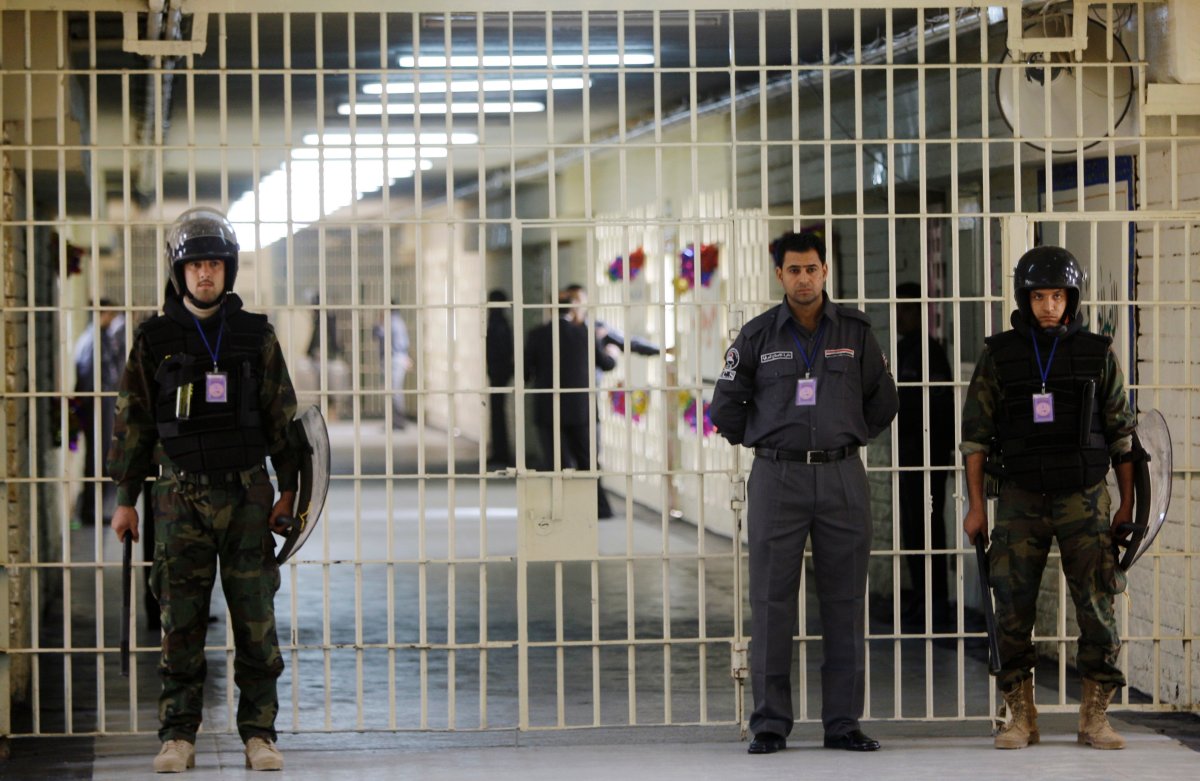BAGHDAD – Forty inmates in a prison in eastern Iraq, including some convicted of terrorism charges, have escaped amid a riot that killed at least six police officers and 30 prisoners, authorities said Saturday.

There were conflicting casualty reports on the attack at the Khalis prison in Diyala province. Two provincial police officials and a medical official put the toll much higher, saying 51 inmates and 12 policemen were killed, while more than 200 inmates escaped. They spoke on condition of anonymity as they were not authorized to release the information.
READ MORE: Prime Minister Stephen Harper makes surprise visit to Iraq
Brig. Gen. Saad Maan Ibrahim, the Interior Ministry spokesman, told The Associated Press that a fight broke out first among the inmates of the prison and when guards went to investigate, they were overpowered and had their weapons taken. There are hundreds of inmates in the prison.
Some of those that escaped were wanted on terrorism charges, Ibrahim added. He said security forces were cordoning off the area, hunting for the escaped inmates. He put the death toll at 36, including the six police officers and 30 prisoners.

Get daily National news
The town of Khalis is located about 80 kilometres north of Baghdad.
Jailbreaks are common in Iraq and usually a result of assaults from militants seeking to free their comrades in prison. The most stunning one was in mid-2013, when militants carried out a carefully orchestrated attack with mortar shells and suicide bombers on Iraq’s infamous Abu Ghraib prison, freeing more than 500 inmates.
Ibrahim said, however, that there was no external attack that sparked the Khalis riot.
Meanwhile Saturday, a car bomb exploded in Baghdad’s central Karrada area, killing at least eight civilians and wounding 28, a police officer said. Among the dead were Shiite pilgrims preparing for next week’s major event commemorating the anniversary of the 8th century death of a revered religious figure, Imam Mousa al-Kazim. Thousands of pilgrims typically march to his shrine in northern Baghdad to commemorate his death.
No group immediately claimed responsibility for the bombing, but it bore the hallmarks of the Islamic State extremist group, which has carried near-daily attacks – along with other Sunni militant groups – against the Iraq’s Shiite majority, government officials and security forces.
The Islamic State group considers Shiites heretics. It captured large chunks of territory in western and northern Iraq last year, plunging the country into its worst crisis since U.S. troops left at the end of 2011.
Associated Press writer Murtada Faraj contributed to this report.







Comments